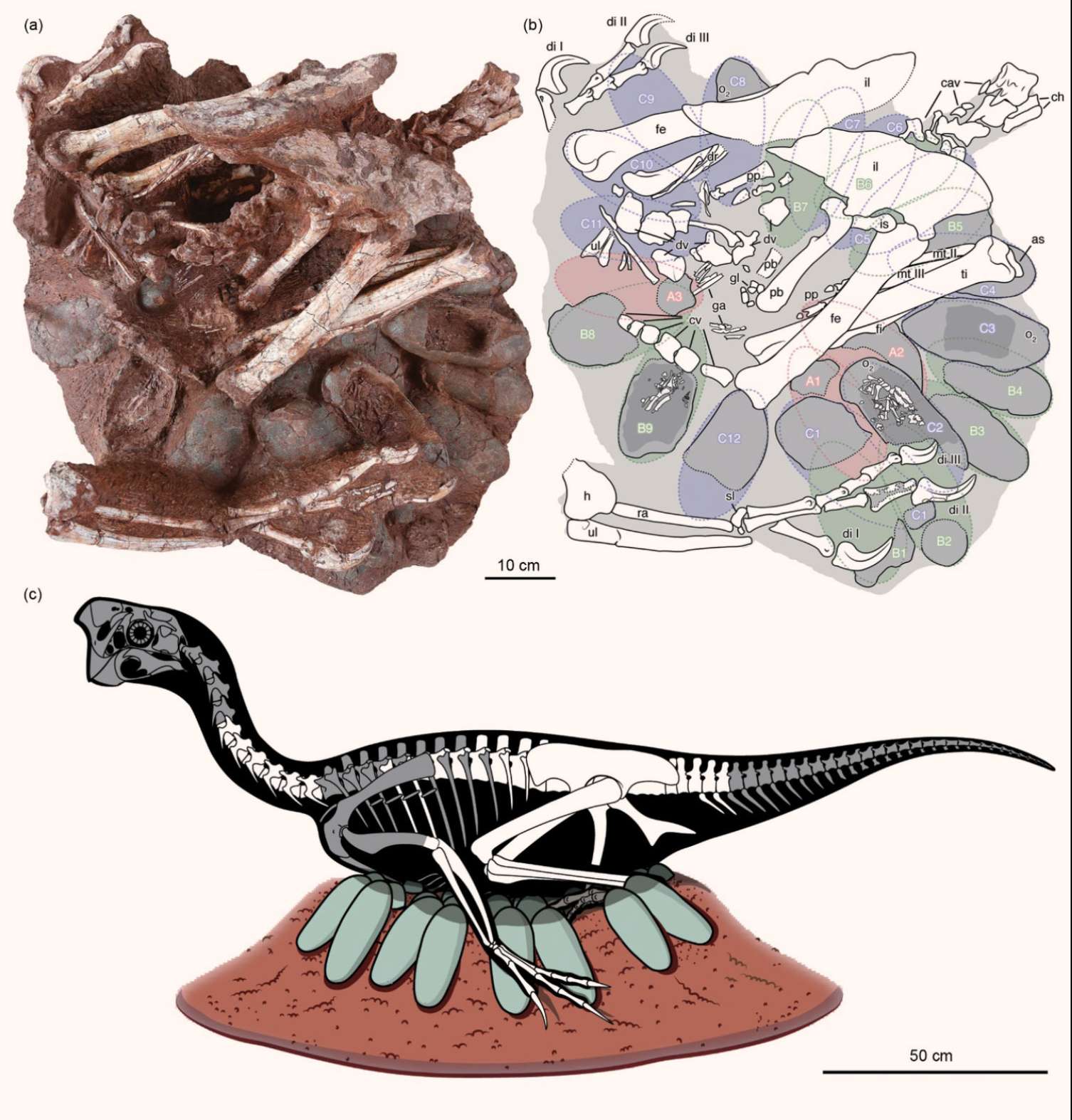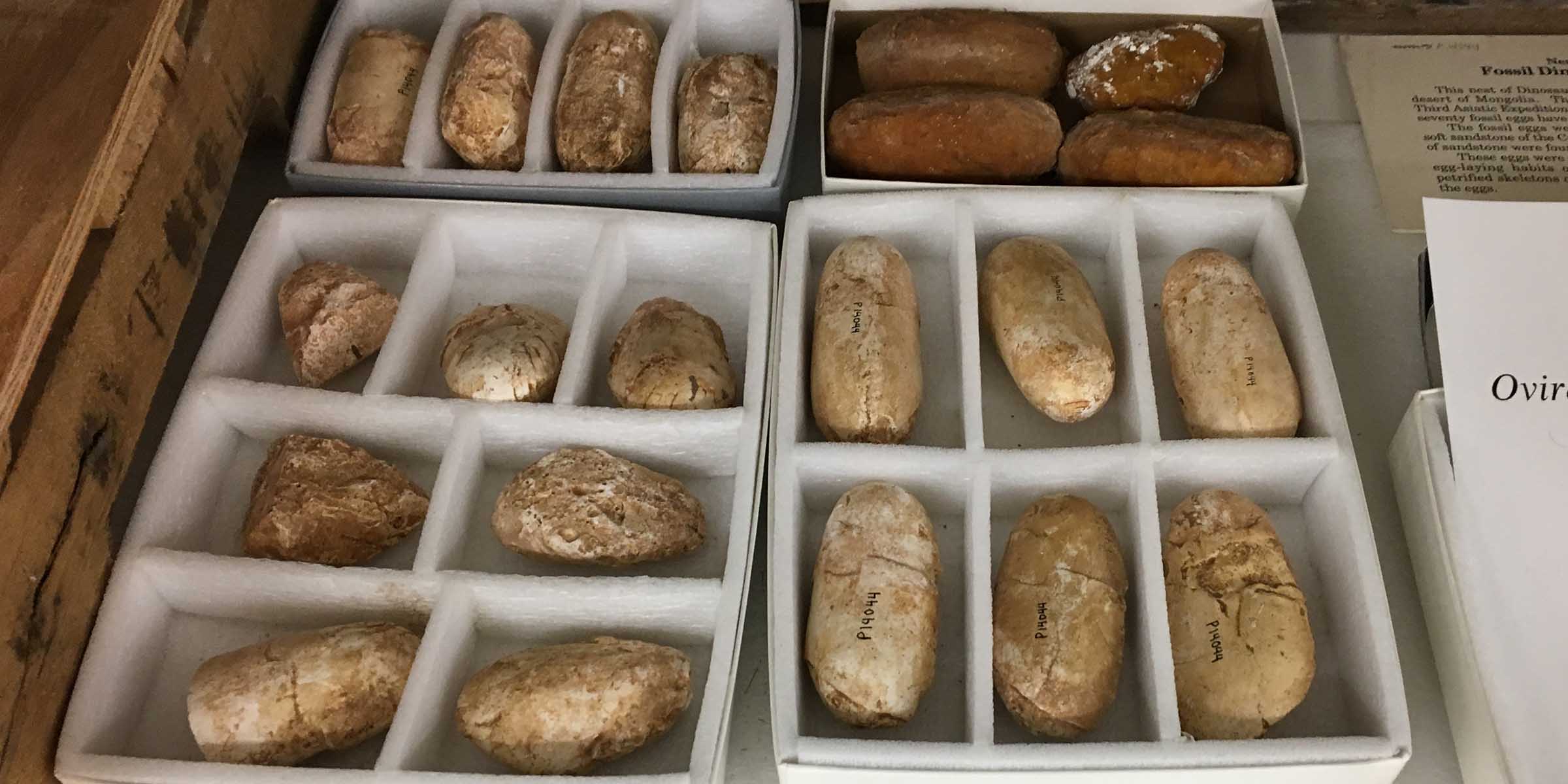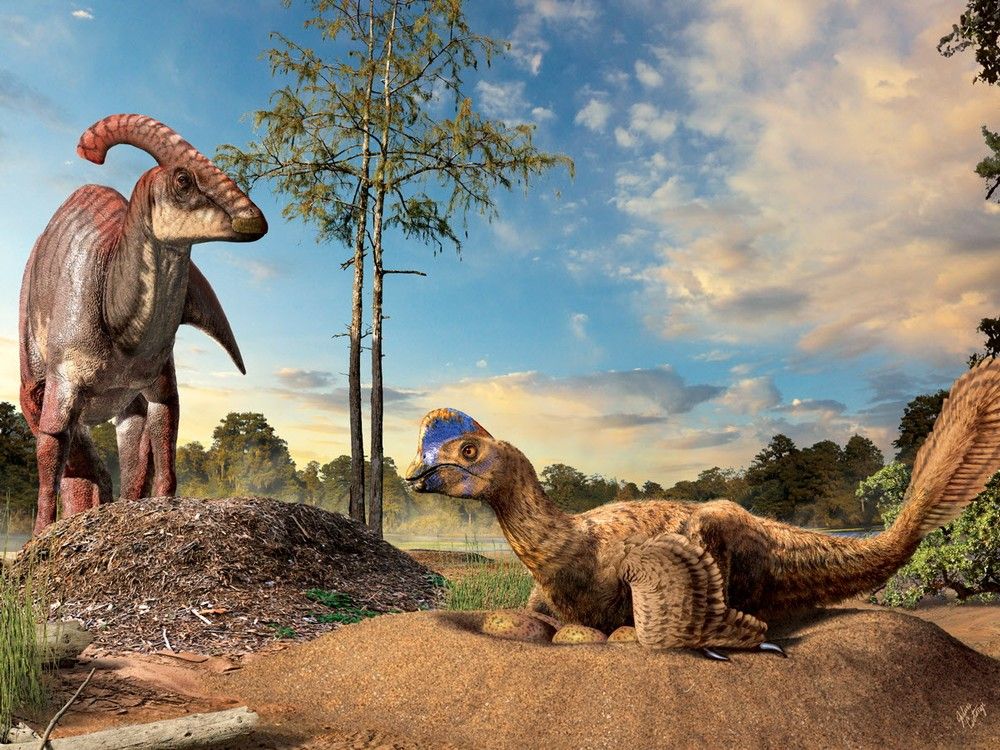
The fossil of a dinosaur sitting on a nest of eggs with embryos inside was unearthed in a first-of-its-kind discovery that sheds light on how the creatures hatched their young.
The skeletal remains of an oviraptorosaur — a bird-like beast that roamed the Earth more than 66 million years ago — were found in 70 million-year-old rocks dug up in Ganzhou, China, according to a report published in the journal Science Bulletin.

The partially preserved feathered dinosaur had been incubating a nest of 24 eggs, seven of which contained the skeletal remains of developing babies, paleontologists said in the report.
The groundbreaking finding is a sign that oviraptorosaurs sat on nests like their present-day avian cousins, rather than guarding clutches of eggs like alligators and other reptiles.

“This kind of discovery — in essence fossilized behavior — is the rarest of the rare in dinosaurs,” Matthew Lamanna of the Carnegie Museum of Natural History in Pittsburgh, Pennsylvania, who authored the study said in a press release. “Though a few adult oviraptorids have been found on nests of their eggs before, no embryos have ever been found inside those eggs.”

Scientists ruled out the possibility that the dinosaur had died while laying eggs due to the late stage of the embryos. They also probed the eggs with an oxygen isotope, which showed they were incubated at high temperatures, just like yet-to-hatch baby birds.

Researchers also found that the embryos were at different developmental stages, suggesting the presence of “asynchronous hatching” — an incubation method that may have evolved in oviraptorid dinosaurs and some birds over time.

“This dinosaur was a caring parent that ultimately gave its life while nurturing its young,” Lamanna concluded in the report.
Other researchers hailed the fossil finding as a breakthrough of Jurassic proportions.
“It’s extraordinary to think how much biological information is captured in just this single fossil,” vertebrate palaeontology Xing Xu of the Chinese Academy of Sciences in Beijing said in a press release. “We’re going to be learning from this specimen for many years to come.”
The report doesn’t note how large the fossilized dinosaur or her eggs were but oviraptorosaurs ranged in size from a turkey to larger than an elephant.